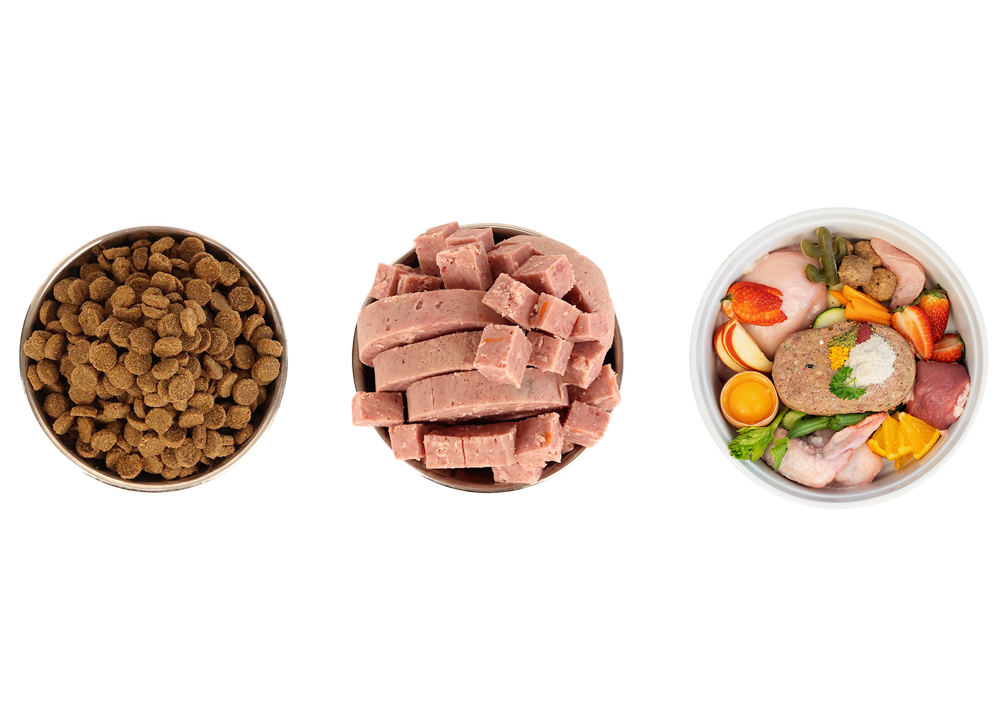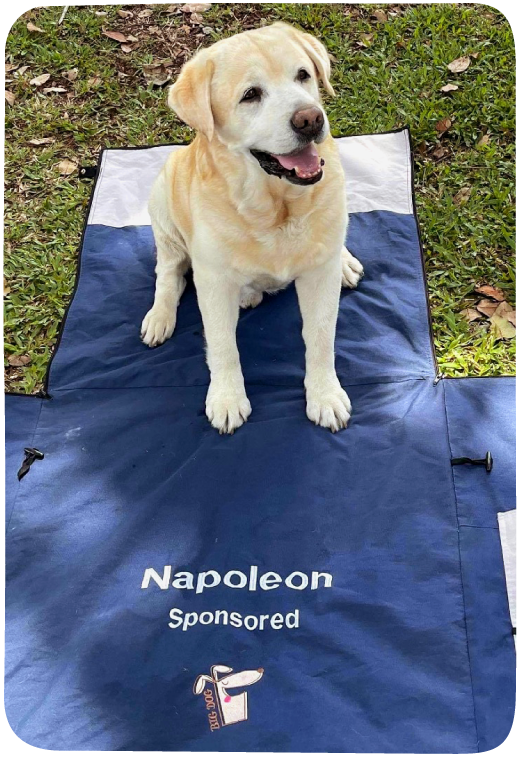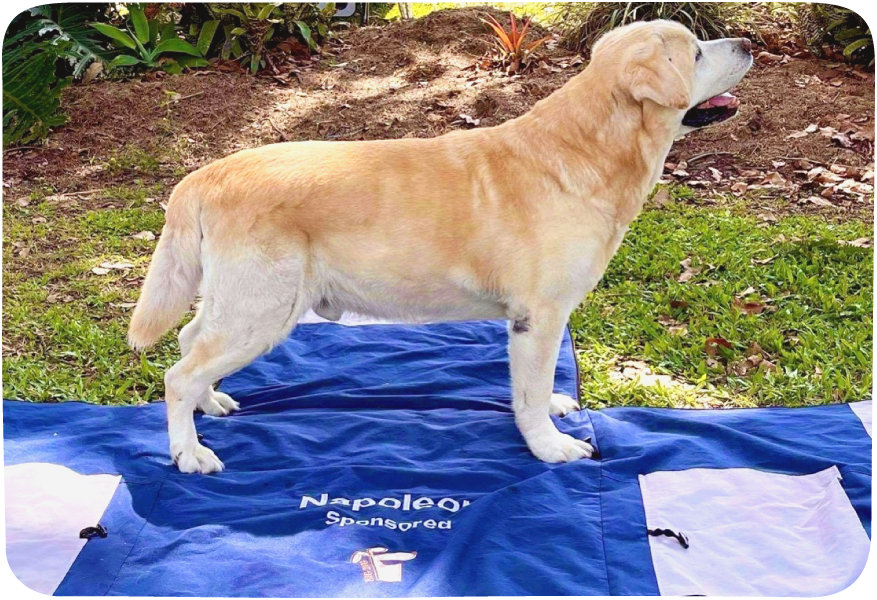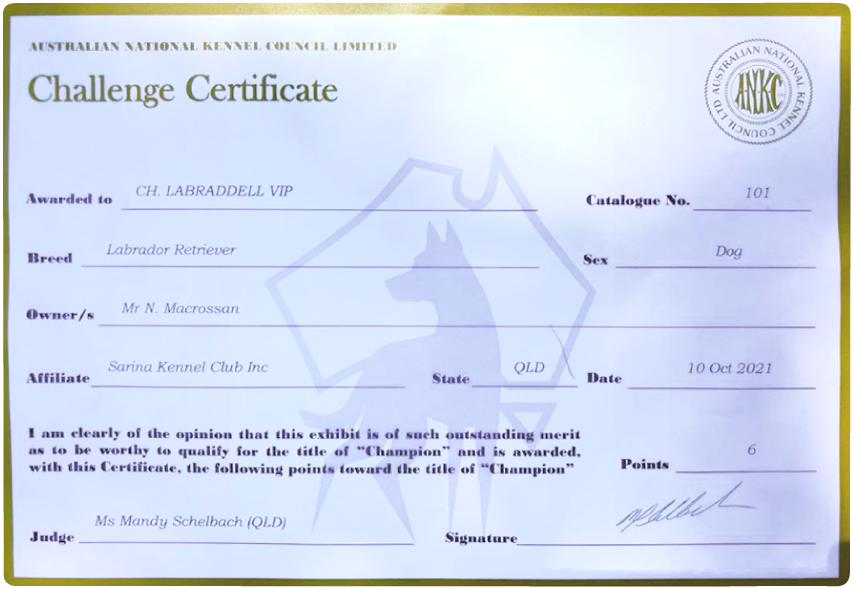A lifelong raw feeding trial


A common criticism of many pet food diets is that they haven’t been around for long enough to give pet-owners the confidence to feed them exclusively, long term.
This is a very valid concern. The pet food industry here in Australia is a multi-billion-dollar industry and consequently, new fad foods, brands, and diets are popping up as more and more companies want a piece of this pie.1
Perhaps even more concerning is that anyone can make and sell pet food. You don’t need to be a vet, a pet nutritionist or even have a science degree; and in recent times, there have been some nutritionally lacking and dangerous foods to hit the market as a result. In addition to this, the standard that outlines what needs to be in a pet food from a nutritional perspective is currently voluntary in Australia and the peak industry body itself, is lobbying to have this changed.2

For those companies choosing to adhere to these standards, the way in which they confirm their food meets the nutritional benchmarks to be called a “complete and balanced pet food” is either by meeting the minimum nutritional guidelines established by one of two accepted international authorities (AAFCO or FEDIAF),3 or performing a feeding trial which shows their food keeps animals healthy for the duration of the trial.4

Neither of these options are without criticism but despite this, feeding trials are considered the gold-standard way to validate pet food diets as nutritionally complete and balanced for pets. This is the approach we took, at Big Dog, to gain our “complete and balanced” status.
The primary criticism of feeding trials comes down to their length. They run for a period of time (from weeks to months) depending on the age or life stage of the population of animals being assessed, and while they will uncover any overt issues with the pet food being fed, they won't show some of the smaller issues that may (in some cases) take years to develop.
And this is where Napoleon’s case is so interesting.
Back in the year 2000 when Big Dog started producing pet food, we were one of these “new, fad diets” the first commercial manufacturer of its kind in Australia to create a raw food diet.
Luckily for us, through pioneers in canine and feline nutrition and the growing body of evidence supporting feeding our domestic pets a more natural, evolutionary and species appropriate diet, we didn’t feel like we were testing our diets on the health of Australia’s pets. And to our customers who have been with us from the beginning, we are very grateful they felt the same way.
Neal Macrossan and his Labrador, Napoleon were one such pair who embarked on their raw feeding journey with the Big Dog brand in 2011 when Napoleon was just 2 years of age.
Napoleon is a highly decorated show Labrador and much-loved companion of Neal. Napoleon entered his first show at 3 years of age and attained his championship title on 28 April, 2013 after only being in the ring seriously for 12 months.

Napoleon has held this title ever since and at the age of 12 years and 9 months, on Sunday 10 October 2021, Napoleon became the oldest Labrador Retriever in the history of official dog showing worldwide, to be officially certified as still worthy to qualify for the title of ‘Champion’.
While Napoleon’s lean and fit body condition and his shiny coat is a visual indicator of his health, it is his annual veterinary health check report that is the most impressive reflection of his condition as a healthy, senior dog.
Napoleon’s latest round of annual blood tests, in addition to x-rays and an ultrasound were performed by an independent veterinary clinic, Coomera Springs Veterinary Surgery, and assessed by Dr Duncan Houston, Holistic Veterinarian, to assess Napoleon’s health beyond his shiny exterior.
Napoleon is now 13 years of age (having turned 13 on Thursday 6 January 2022). He has been eating Big Dog as his sole source of staple nutrition for over 10 years. As Dr. Duncan explains:
“Over such a long period of time, if his diet had been lacking in any way, signs of dietary deficiencies would have emerged physically, or been evident in his health testing reports.”
As a brand who pride ourselves on providing 100% natural diets, we have received criticism over the years for perceived dietary deficiencies on account of choosing not to add synthetic forms of nutrition to our diets. This concern is not alleviated simply through our feeding trial due to length, as previously noted.
One such perceived deficiency is Vitamin E which, if going by the minimum inclusion requirements established by AAFCO, natural diets such as Big Dog, often fall just shy of the mandated levels. However, as Dr. Duncan notes:
“Vitamin E is absorbed twice as well in nature, as it is in its synthetic alpha-tocopherol form. The absorption of the vitamin E content in Big Dog diets negates any perceived deficiency by not adding a supplement. Vitamin E deficiency, clinically presents as a number of conditions. The most common of these including nerve and muscle disorders, vision problems and a weakened immune system. Napoleon’s physical condition and testing results show no sign of Vitamin E deficiency which would be expected of a dog who had been eating the same food for nearly their entire life, so far, if the food were deficient in Vitamin E”.
In review of Napoleon’s case and medical results, Dr Duncan states that nutritional deficiencies would show in specific pathologies at his age. Napoleon is a healthy, active dog with healthy testing results for his age.
In looking at two of the most critical minerals to be balanced in pet food, calcium and phosphorus, there presents another criticism of raw food diets. This being that these two minerals cannot be properly balanced when feeding fresh food diets when compared to adding specific amounts of synthetic nutrition to the diet. In order to ensure our diets are balanced, regular testing of Big Dog diets in-house as well as through leading 3rd party testing laboratories has become part of our normal process. When confirming this balance over time in assessing Napoleon’s blood work, we were pleased to see that these results support the correct balance of these two minerals with circulating levels of phosphorus and calcium at normal, healthy levels.
Normal signs of ageing expected for an active near 13-year-old entire male were present in Napoleon’s results. These included some age-related skeletal decline, lipomas (benign fatty lumps under the skin) and a slightly enlarged prostate which is normal for an entire male of Napoleon’s age.
Something we speak of a lot at Big Dog is the importance of anti-inflammatory ingredients to be included in any pet’s diet as opposed to many of the pro-inflammatory compounds and ingredients found in processed pet food. A marker of inflammation in the body can be assessed through testing an inflammatory marker called C-reactive protein. Napoleon’s C-reactive protein levels were within the normal, healthy range.
Napoleon’s story pairs well with the feeding trial Big Dog has undertaken with the Smart Pups Charity organisation who wean their pups onto Big Dog and feed them exclusively while they are in their care for training. This is, generally speaking, until between 1 and 2 years of age, when these dogs are fully trained and sent to their new families, to hopefully continue to be fed a healthy raw food diet to support the important work these dogs do.
Of course, we acknowledge that Napoleon is just one dog. Genetics also contribute to how well our pets age and this case study is not to be considered a clinical trial.
It is however, one of the many personal stories of health and longevity that we are lucky to come across as Australia’s longest-running and most-natural raw food diet provider.
Napoleon’s case is just one of many more case studies we will track and share to help provide our customers with the confidence that when a dog is fed exclusively Big Dog as their staple diet, it is a healthy diet for life.


References:
- https://www.smh.com.au/national/australias-gourmet-pet-food-industry-booming-20210512-p57rdq.html
- https://pfiaa.com.au/pfiaa-time-for-govt-oversight/
- Australian Standard for the manufacturing and marketing of pet food (AS5812:2017)
- AAFCO Association of American Feed Control Officials 2020 Official Publication.
Read more about our Complete and Balanced foods.
